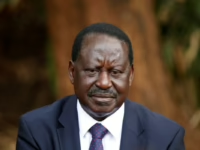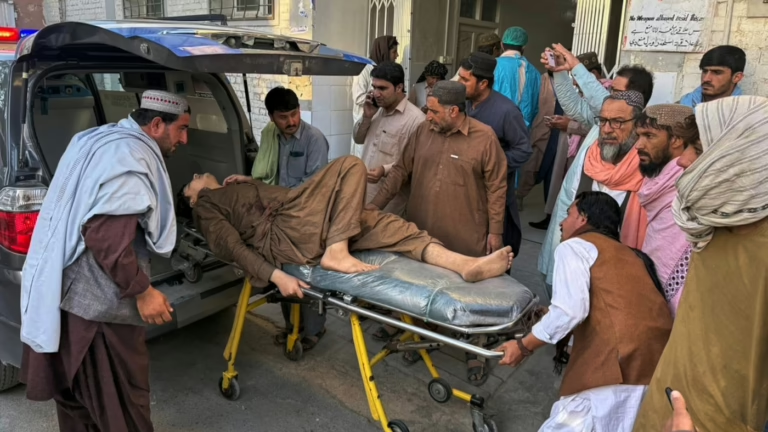A man wounded during confrontations between Pakistani and Afghan forces near the border is brought to a hospital in Chaman, Pakistan, on Wednesday.
H. Achakzai/AP
toggle caption
H. Achakzai/AP
ISLAMABAD – Following several days marked by deadly clashes along their shared border, Pakistan announced on Wednesday that it has consented to a 48-hour ceasefire with Afghanistan.
According to Pakistan’s Foreign Ministry, the truce was initiated at the request of Afghan authorities.
However, shortly after, Zabihullah Mujahid, the chief spokesperson for the Taliban-led Afghan government, stated on X that the ceasefire came “at the insistence” of Pakistan. He did not specify the 48-hour duration but emphasized that all Afghan forces have been ordered to uphold the ceasefire “unless it is breached by the other side.”
Pakistan has long accused Afghanistan of providing sanctuary to militant groups, a claim the Taliban administration denies. Since the Taliban’s takeover in 2021, Pakistan has faced a surge in militant attacks within its borders.
The recent spike in hostilities threatens to further destabilize a region where extremist organizations such as the Islamic State and al-Qaida are attempting to regain influence and establish operational bases.
Earlier on Wednesday, prior to the ceasefire declaration, Pakistani military officials reported that their forces had killed numerous Afghan security personnel and militants during overnight confrontations. The fighting had briefly paused on Sunday after appeals from influential regional actors including Saudi Arabia and Qatar.
Pakistani authorities described the Afghan assaults as “unprovoked” and denied allegations of civilian targeting, despite Taliban claims that over a dozen civilians were killed and more than 100 injured in Pakistani strikes on border areas within Afghanistan’s southern Kandahar province.
Mujahid detailed that Pakistani forces employed both light and heavy weaponry in attacks on Spin Boldak district in Kandahar. Afghan troops responded with counterfire, reportedly killing several Pakistani soldiers, capturing military posts, and seizing equipment such as tanks.
Additionally, two Pakistani security officials, speaking anonymously, confirmed that Pakistan’s military conducted operations against pakistan-misread-taliban-lost-frontier-peace/” title=”How …'s Misjudgment of the Taliban Shattered Peace on the Frontier | Armed Groups News”>militant hideouts in Kabul, Afghanistan’s capital.
Residents of Chaman, a Pakistani border town, reported mortar shells landing near local villages, prompting some families to evacuate early Wednesday morning.
“The fighting has been ongoing since early today, and those living near the border are fleeing the area,” said Najibullah Khan, a Chaman local, who called on both nations to halt hostilities to prevent further civilian harm.
Violence has plagued Pakistan’s border regions since 1979, when the country became a frontline state during the U.S.-supported conflict against Soviet forces in Afghanistan.
“Following the September 11 attacks, Pakistan’s tribal areas descended into turmoil as the Afghan Taliban, al-Qaida, and other militant groups operated across the border, launching attacks against NATO and Pakistani forces,” explained Abdullah Khan, defense analyst and managing director of the Pakistan Institute for Conflict and Security Studies.
As of Wednesday, major border crossings between Pakistan and Afghanistan remain shut.





















